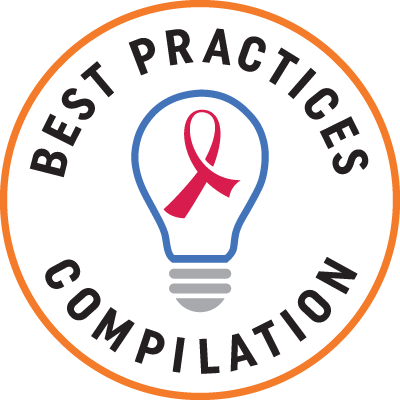Outpatient Medical Care
Outpatient/ambulatory medical care (OAMC) includes the provision of professional diagnostic and therapeutic services rendered by a physician, physician‘s assistant, clinical nurse specialist, nurse practitioner, or other health care professional who is certified in his or her jurisdiction to prescribe antiretroviral (ARV) therapy in an outpatient setting. These settings include clinics, medical offices, and mobile vans where clients generally do not stay overnight. Emergency room services are not considered outpatient settings.
Services include diagnostic testing, early intervention and risk assessment, preventive care and screening, practitioner examination, medical history taking, diagnosis and treatment of common physical and mental conditions, prescribing and managing medication therapy, education and counseling on health issues, well-baby care, continuing care and management of chronic conditions, and referral to and provision of specialty care (includes all medical subspecialties). Primary medical care for the treatment of HIV infection includes the provision of care that is consistent with the PHS‘s guidelines. Such care must include access to ARV and other drug therapies, including prophylaxis and treatment of opportunistic infections and combination ARV therapies.
Early Intervention Services provided by Ryan White Parts C and D programs are reported under outpatient/ambulatory medical care.
Website
- AETC National Coordinating Resource Center (NCRC)
- National Clinician Consultation Center
- U.S. Department of Health and Human Services
Best Practices
- HRSA Bureau of Primary Health Care (BPHC), Centers for Disease Control and Prevention (CDC)
- The HIV, Housing & Employment Project
Technical Assistance
- The central hub of the AETC Program, the clinical training arm of the RWHAP, through HIV curricula, technical support to regional AETCs on practice transformation and best practices, and housing of all AETC-developed tools for HIV clinical staff. Project period: 2019-2024.
Clinician consultation on HCV management, HIV management, perinatal HIV/AIDS, pre-exposure prophylaxis (PrEP), post-exposure prophylaxis, substance use. Project period: 2016-2025.
- The NHC provides ongoing, up-to-date information needed to meet the core competency knowledge for HIV prevention, screening, diagnosis, and ongoing treatment and care to healthcare providers in the United States. Project period: 2020-2022.
- The AETC Program offers clinician education and tailored capacity-building assistance. Project period: 2019-2024.
 Initiative documenting best practice strategies and interventions that have been shown to improve HIV outcomes in a "real world" setting and can be replicated by other programs. Project period: 2021-2024.
Initiative documenting best practice strategies and interventions that have been shown to improve HIV outcomes in a "real world" setting and can be replicated by other programs. Project period: 2021-2024.